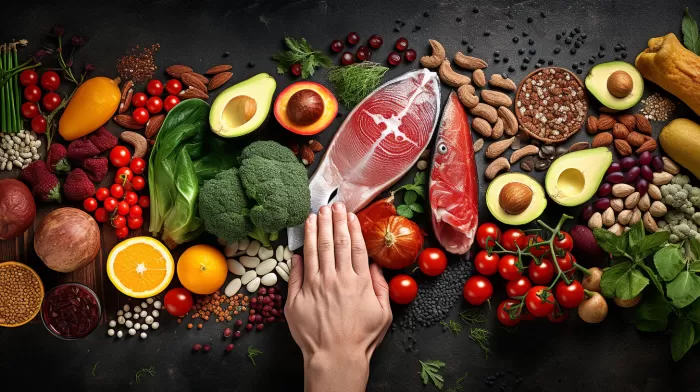Are you constantly suffering from stiff, swollen hands and feet and can’t figure out why? It’s possible that your diet could be contributing to these health issues. In fact, your body’s immune response could be a major factor. Rheumatoid arthritis (RA), an autoimmune disorder, may be the driving force behind your pain and swelling. Luckily, there are some key dietary changes you can make to reduce inflammation and improve your overall wellbeing.
First, let’s discuss rheumatoid arthritis. Affecting more than 2 million people, RA causes the immune system to mistakenly attack healthy tissues, particularly the joints in the hands and feet. As a result, the lining of your joints becomes inflamed, leading to pain, erosion of cartilage, and bone deformity. Poor digestion and stress can exacerbate RA symptoms, so it’s essential to focus on supporting your immune system through stress-reduction techniques and dietary changes.
Stress Relief Techniques for RA
Stress plays a significant role in the autoimmune response, so it’s essential to control stress levels to calm your immune system. Here are three stress-reduction techniques that may help alleviate the pain and inflammation associated with RA:
- Yoga: Deep breathing and specific yoga poses can significantly reduce stress, according to the National Center for Biotechnology Information (NCBI).
- Music: Listening to your favorite tunes may soothe stress and create an environment of relaxation, as reported by the University of Maryland Medical Center.
- Massage: Massages can help relieve joint pain and reduce stress, as suggested by the NCBI.
Dietary Changes for RA
Eliminating inflammatory foods from your diet can help counteract an autoimmune response. Incorporating anti-inflammatory foods like fruits, vegetables, grains, beans, legumes, and healthy oils like coconut, avocado, and extra virgin olive oil can promote better digestion and reduce inflammation. Aim to eat fish high in omega-3 fatty acids, like Alaskan wild salmon, sardines, Alaskan black cod, and albacore tuna. You can also consume the following foods in moderation:
- Eggs
- Dairy products
- Butter
- Natural cheeses
- Yogurt
- Lean meats
- Skinless poultry
In addition, it’s important to avoid consuming inflammatory foods and beverages, such as:
- Cooking oils like sunflower, canola, safflower, peanut, cottonseed, rapeseed, corn, and vegetable
- Sugar
- Alcohol
- Refined grains
- Processed meats
- Margarine and shortening
- Processed and packaged foods
Herbal Remedies for RA
There are multiple herbal remedies available to help alleviate pain and inflammation associated with RA. A combination of herbs can target specific symptoms and provide relief. For example, a mixture of tinctures made from equal parts meadowsweet, willow bark, black cohosh, prickly ash, celery seed, nettle, wild yam, and valerian can be beneficial.
Before starting any new herbal remedies or dietary changes, consult with your healthcare provider, especially if you’re taking medications for your joint pain and inflammation. It is also recommended to visit health food stores to inquire about these natural herbs and seeds.
By making simple dietary changes and incorporating stress-relieving techniques, you can help improve your symptoms from rheumatoid arthritis and live a healthier life. Despite the unknown exact cause of autoimmune responses, taking proactive steps can make a significant difference in managing the stiffness, swelling, and pain in your hands and feet.



